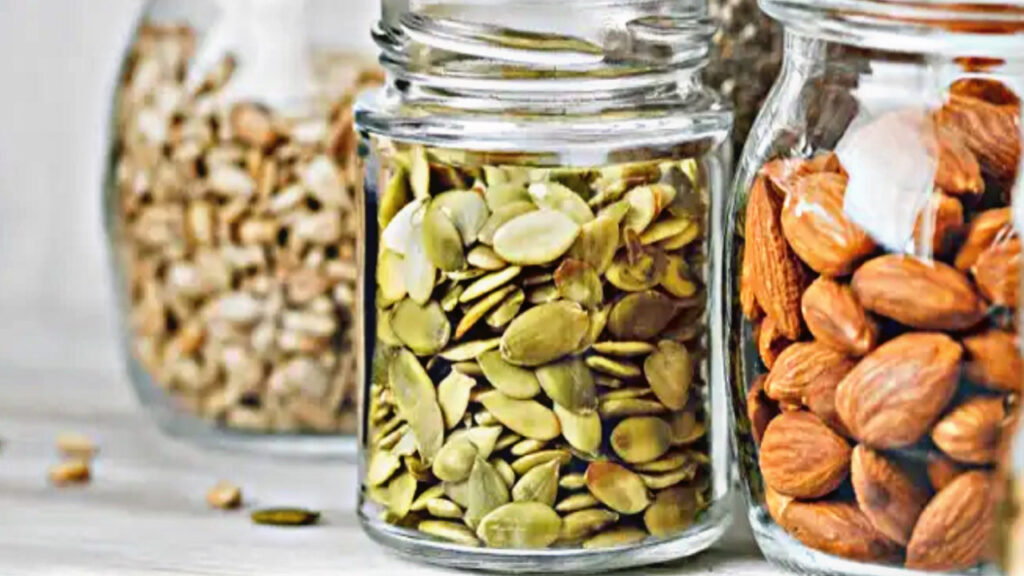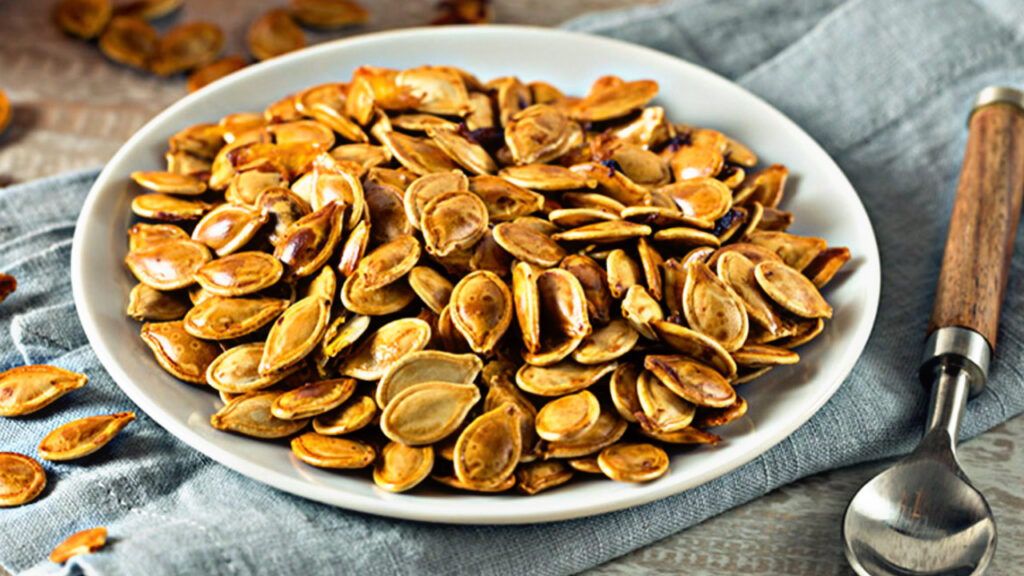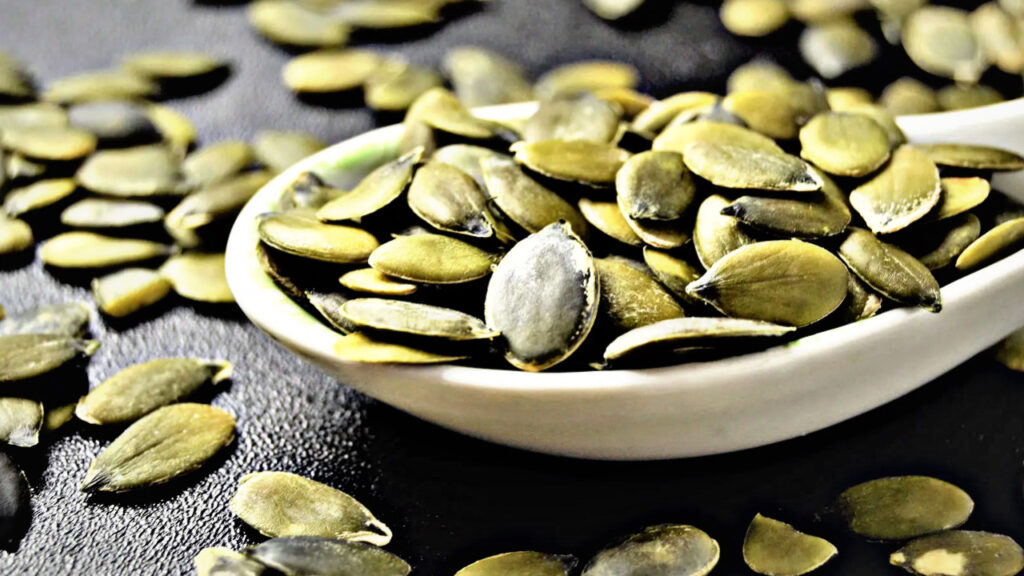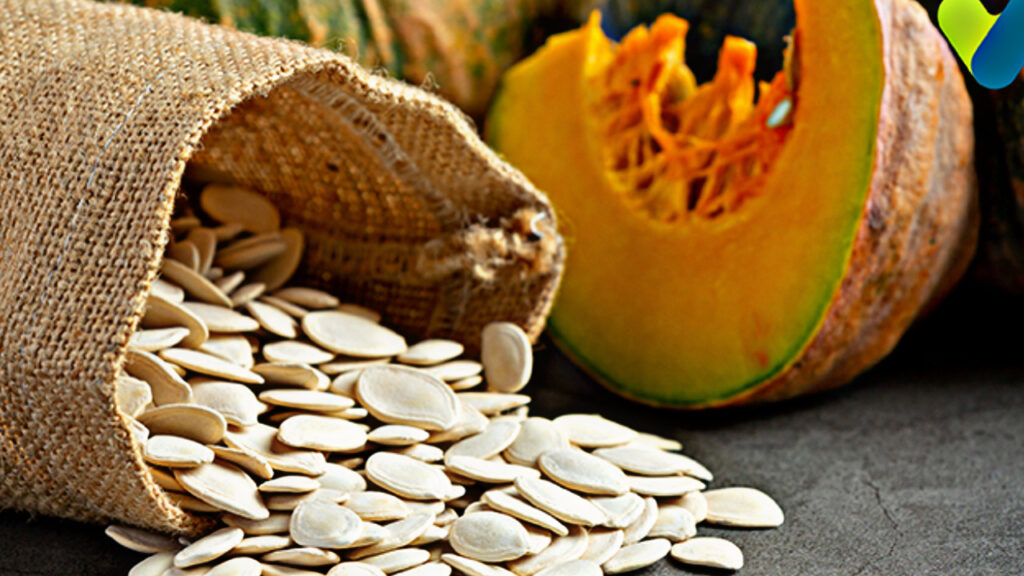Pumpkin Seeds
Pumpkin seeds, also known as pepitas, are small, flat, green seeds that come from the pumpkin fruit. While they may look tiny, they are packed with nutrition. In recent years, health experts and researchers have shown growing interest in pumpkin seeds due to their potential health benefits especially their possible role in reducing cholesterol levels.
But can eating pumpkin seeds actually help lower cholesterol? Let’s explore the science behind this natural superfood.

Nutritional Powerhouse
Pumpkin seeds are rich in a variety of nutrients that support overall health. These include:
- Healthy fats (especially omega-3 and omega-6 fatty acids)
- Magnesium
- Zinc
- Antioxidants
- Fiber
- Protein
This unique combination makes them a heart-friendly food. Many of these nutrients are directly linked to improved heart health and better cholesterol management.
How Pumpkin Seeds Affect Cholesterol

- Rich in Healthy Fats
Pumpkin seeds contain unsaturated fats, which are known to help lower bad LDL cholesterol and raise good HDL cholesterol. Replacing saturated fats in the diet with unsaturated fats from sources like pumpkin seeds can support healthier cholesterol levels. - High in Fiber
Fiber plays a major role in cholesterol control. Soluble fiber binds with cholesterol in the digestive system and helps remove it from the body. Although pumpkin seeds are not extremely high in fiber, eating them with the seed coat (shell) can increase fiber intake significantly. - Plant Sterols
Pumpkin seeds contain phytosterols, which are plant compounds structurally similar to cholesterol. These compounds compete with cholesterol for absorption in the digestive tract, reducing the amount of cholesterol that enters the bloodstream. - Magnesium for Heart Health
Magnesium helps regulate blood pressure and supports normal heart rhythm. Low magnesium levels have been linked to high LDL cholesterol and triglycerides. A handful of pumpkin seeds provides a good portion of the recommended daily magnesium intake.
What Does Research Say?
Several studies have examined the link between pumpkin seeds and cholesterol. While more large scale research is needed, some smaller studies and animal research have shown promising results:
- In a study published in the Journal of Medicinal Food, pumpkin seed oil was found to reduce LDL cholesterol and increase HDL cholesterol in postmenopausal women.
- Animal studies have also indicated that diets enriched with pumpkin seed extract may lead to lower cholesterol levels.
These findings suggest that including pumpkin seeds as part of a balanced diet may offer cardiovascular benefits.
How to Add Pumpkin Seeds to Your Diet

Pumpkin seeds are easy to incorporate into everyday meals:
- Sprinkle them on salads or yogurt
- Add them to smoothies
- Use as a topping on oatmeal or cereals
- Eat them roasted as a healthy snack
To get the most benefit, choose unsalted and unflavored pumpkin seeds. Eating them raw or lightly roasted is best to preserve nutrients.
Pumpkin seeds are more than just a seasonal snack they are a nutritious addition to a heart-healthy diet. While they are not a cure for high cholesterol, they can support cholesterol management when combined with a healthy lifestyle, balanced diet, and regular exercise.
As always, it’s best to consult with a healthcare provider before making any major changes to your diet, especially if you have existing heart conditions or are taking medication.





